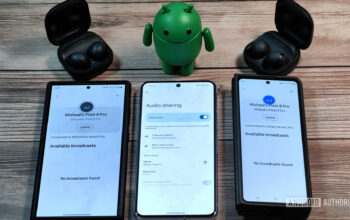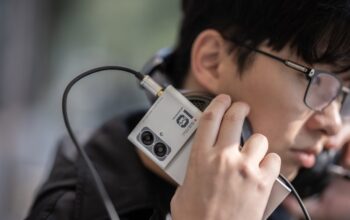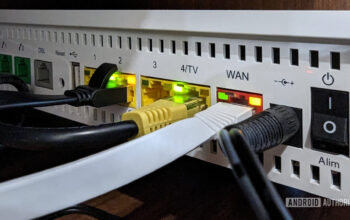
In a patent application titled “User Identification Using Headphones,” Apple has laid claim to a system that could let AirPods verify user identity based on the shape of the ear canal.
Apple offers Face ID and Touch ID for biometric authentication on iPhone, but the wearables like AirPods miss out on the security feature. Apple’s filing with the United States Patent and Trademark Office (USPTO) explains that the technology will help the AirPods confirm if the wearer is the owner of the phone/computer paired to the AirPods. Apple believes the system is necessary because users could inadvertently start using their AirPods while connected to another person’s device. That could lead to privacy breaches, such as via Siri’s notification announcements.
Apple’s new system of user identification via headphones would be capable of bypassing the need for Face ID and Touch ID or any other biometric authentication system. Instead, the system would depend on a “similarity score” evaluated using multiple variables such as the number of nearby devices that belong to the same owner. The ear canal biometrics could also enhance the accuracy of the similarity score.
Weird as it sounds, the patented system would identify the current owner’s ear canals by playing ultrasonic frequencies through the headphones and analyzing the echo to create a unique signature, much like a submarine’s SONAR system. “For instance, a user having a larger ear canal may result in an echo having a longer reverberation time than a user having a smaller ear canal.”
Besides relying on the ear canal echo signature, the AirPods biometric authentication could also identify the right user by evaluating their gait and voice using the AirPods’ onboard accelerometers, gyroscopes, and mics. The data gathered would help authenticate users if their “similarity score” crosses the required threshold.
Our Take
We believe the only perceivable downside of the above-described system is that you won’t be able to share AirPods with a friend or partner unless Apple provides a toggle to turn the feature on and off. That said, patent filings do not guarantee that the technology would be deployed on consumer products. Do you think AirPods need a biometric authentication system of its own? Let us know in the comments below.
[Via USPTO, Patently Apple]
.adslot_1 { width: 300px; height: 250px; } @media (min-width:340px) { .adslot_1 { width: 336px; height: 280px; } } <!– Like this post? Share it! –> <!–
–>



